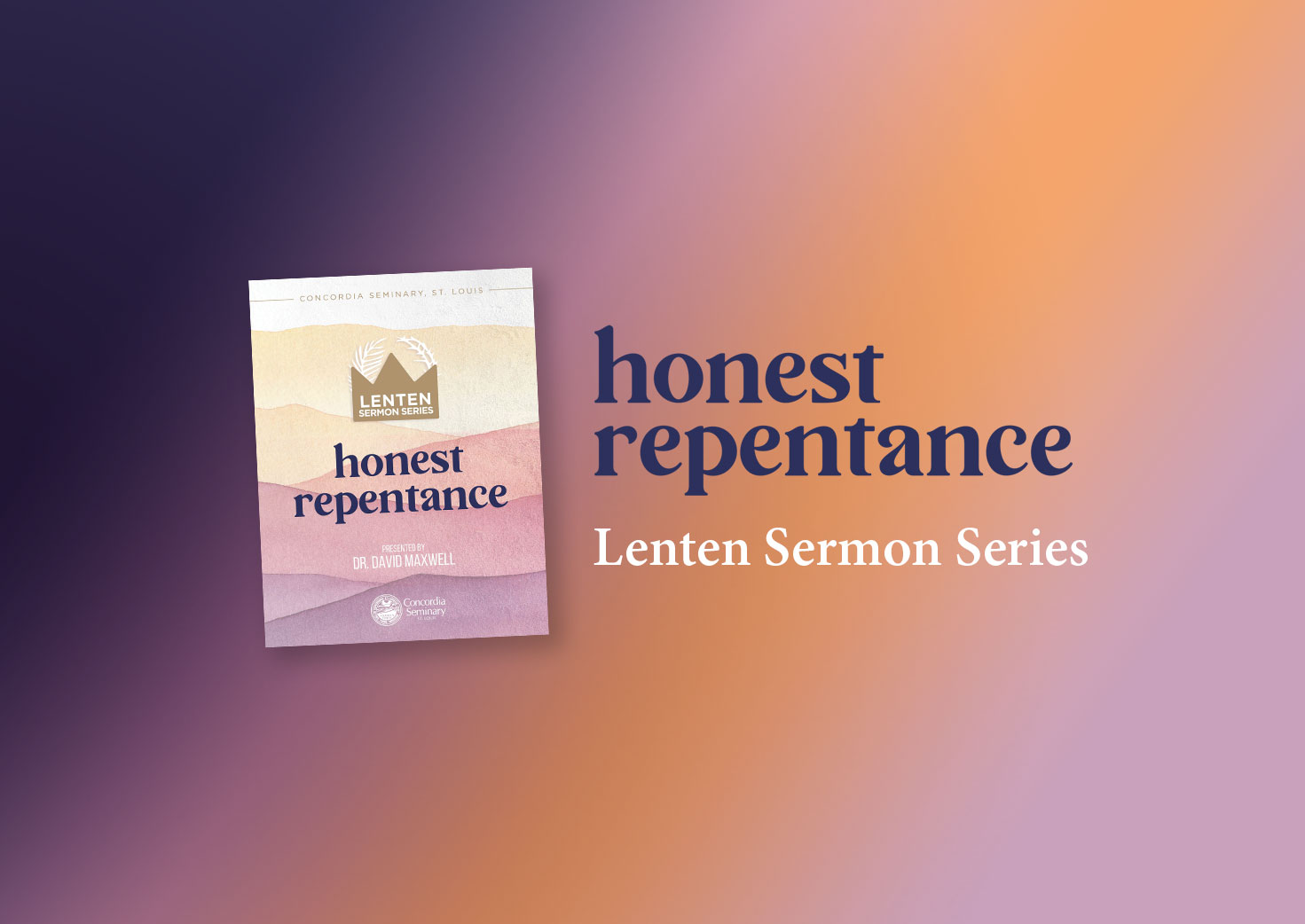Honest Repentance is the theme of our 2023 Lenten sermon series. This series consists of six doctrinal sermons exploring the nature of repentance. Series author Dr. David Maxwell will lead a corresponding workshop to help pastors develop their worship resources for Lent. Learn more about the January 2023 Pre-Lenten Workshop.
 This series consists of six doctrinal sermons exploring the nature of repentance, designed to be preached during Wednesday night Lenten services. By doctrinal sermon, I mean a sermon that employs the themes and imagery of a biblical text to elucidate a doctrinal topic. This approach employs a somewhat freer use of the biblical material than our modern way of doing exegesis, since it does not focus exclusively on the original intent of the author in the text’s original context. Instead, it explores the resonances of the biblical text with other parts of Scripture and with Lutheran doctrine in order to sketch a picture of what repentance looks like in the Christian life.
This series consists of six doctrinal sermons exploring the nature of repentance, designed to be preached during Wednesday night Lenten services. By doctrinal sermon, I mean a sermon that employs the themes and imagery of a biblical text to elucidate a doctrinal topic. This approach employs a somewhat freer use of the biblical material than our modern way of doing exegesis, since it does not focus exclusively on the original intent of the author in the text’s original context. Instead, it explores the resonances of the biblical text with other parts of Scripture and with Lutheran doctrine in order to sketch a picture of what repentance looks like in the Christian life.
Repentance starts with being honest before God and ourselves about who we are. When it comes to sin, everyone has a natural impulse to hide, but repentance means finding the courage to be honest. It also means having faith in the promise of forgiveness. But being honest about faith means recognizing that faith is contested on many sides not only by society, but by our own experiences, and sometimes even by the actions of God himself. Finally, repentance means becoming more human, not less. Because our thoughts, desires, and actions are so linked with sin, it is easy to view repentance as fighting against our humanity as if holiness meant trying to stifle as many of our natural human impulses as possible. But honest repentance recognizes that sin is the thing that stifles our humanity, while repentance results in our natural impulses functioning more and more as God designed them.
Though not cited explicitly in the sermons, the key texts from the Lutheran Confessions that stand in the background are the following. First, the definition of repentance as contrition and faith is found in article 12 of the Augsburg Confession and the Apology. The practice of repentance is described as the daily use of baptism in the fourth question on Baptism in the Small Catechism. There Luther says that we use our baptism by “daily contrition and repentance.” Finally, the nature of original sin is described in article 1 of the Formula of Concord, where it states that sin is an accident, not a substance. These are the doctrinal points that are fleshed out in a narrative way with Scriptural imagery in the sermons.
In order to explore the themes described above, I have chosen some of the readings that are assigned for the Easter Vigil. In the context of the Easter Vigil, these readings capture the broad sweep of God’s saving acts in the Bible, culminating in baptism, which traditionally takes place at the vigil. That makes the readings good candidates for exploring the Christian use of baptism through “daily contrition and repentance,” as the Small Catechism puts it.
Some of the readings are quite long, so I have listed them here along with an alternate shorter reading that corresponds with the content of the sermons.
- Law (Creation: Gen 1:1 – 2:3 or Gen 1:1-10)
- Chaos (The Flood: Gen 7:1-5, 11-18; 8:6-18; 9:8-13 or Gen 7:6-12, 17-21; 8:1)
- Faith (Abraham & Isaac: Gen 22:1-18)
- Repentance (The Repentance of Nineveh: Jonah 3:1-10)
- Purification (The Three Men in the Fiery Furnace: Dan 3:1-30 or Dan 3:13-30)
- Salvation (The Crossing of the Red Sea: Ex 14:10 – 15:1)


Leave a Reply
You must be logged in to post a comment.